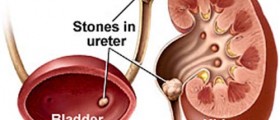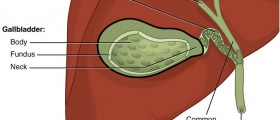
Tonsils are apart from kidneys one more predisposing site for stone formation. These gland-like structures are located at the back of the throat. Tonsils are made of lymphatic tissue and they contain lymphocytes, white blood cells necessary for prevention and battle against infections. Tonsils are considered important in trapping of all the pathogens which enter the oral cavity and prevention of their passage through the throat.
Causes of Tonsil Stones
Tonsil stones are medically known as tonsilloliths. Initially, tonsil stones represent structures which contain nooks and crannies filled with bacteria and other substances such as dead cells and mucus. Definitive tonsil stones are formed once the trapped debris hardens and calcifies. The condition predominantly affects people suffering from chronic inflammation of the tonsils. In majority of cases the stones are small.
Symptoms of Tonsil Stones
If tonsil stones are small enough the disease may be asymptomatic. This is why many of tonsil stones are actually accidentally identified once the person undergoes X-ray or CT scan of the head and maxillofacial area due to other indications. On the other hand, in some people tonsil stones may cause certain symptoms and signs. Bad breath is one of the characteristic of the condition. Halitosis is a consequence of improper production of saliva or accompanying inflammation of the tonsils. Furthermore, some patients complain about sore throat and difficulties swallowing. Tonsils may significantly enlarge and be covered with white debris. And finally, due to shared nerve pathways the pain caused by tonsil stones may radiate towards ears.
Treatment for Tonsil Stones
Basically, the treatment for tonsil stones varies depending on the size of the stone and accompanying symptoms and difficulties. Namely, in patients who are accidentally diagnosed tonsil stones and in case of asymptomatic diseases there is no need for treatment. Some people may dislodge tonsil stones by themselves with the use of picks or swabs. This may be effective in superficial stones which are reachable and not so big. Pain and discomfort caused by tonsil stones may be alleviated with salt water gargles. If the stones cause inflammation or infection of the tonsils patients are prescribed antibiotics. And finally, if the stones are way too large and cause serious problems they are surgically removed. Surgical procedure for removal of the tonsil stones is rather simple and usually performed under local anesthesia.
Prevention of Tonsil Stones
Since this condition affects people suffering from chronic tonsillitis the only effective way to prevent the formation of tonsil stones is surgical removal of the damaged tonsils. This way nonfunctional and severely damaged tonsil tissue is removed and tonsil stones simply cannot develop.

















Your thoughts on this
Loading...